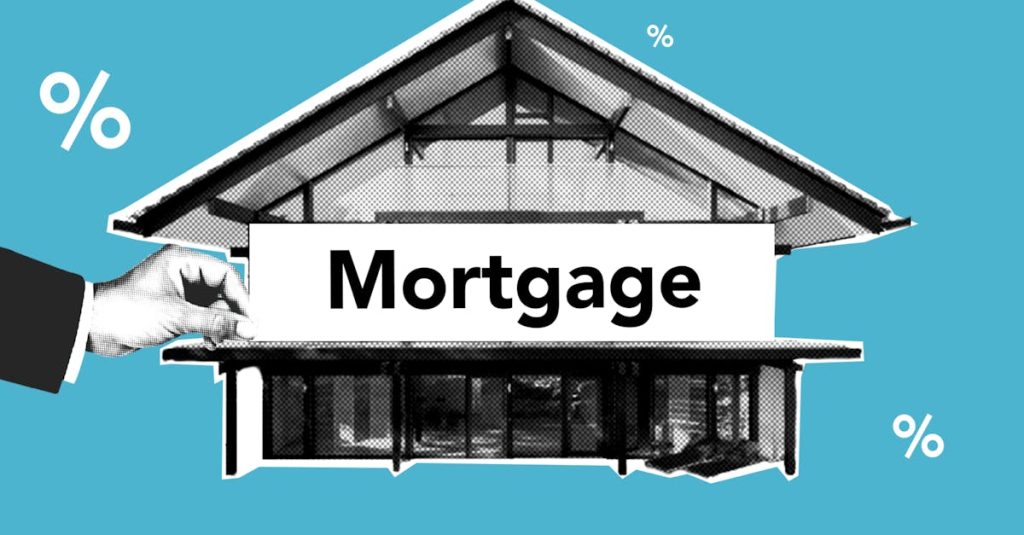Understanding Inflation Impact on SBA Loans and Mitigation Techniques for Small Businesses in 2025
Estimated reading time: 6 minutes
- Monitor inflation indicators and their impact on your industry.
- Strengthen financial relationships with lending institutions for better products.
- Utilize digital tools for effective cash flow management.
- Maintain a strong credit score to access favorable financing options.
- Develop a proactive financial strategy in response to inflation.
Table of Contents
- Inflation and Small Business Funding
- How Federal Interest Rate Changes Affect SBA Loans
- Strengthening Bank Relationships for Better Financial Prospects
- Credit Score Management Strategies under Inflation
- Digital Cash Flow Tools to Aid in Inflation Times
- Practical Takeaways for Business Owners Exploring Financing
- Conclusion
Inflation and Small Business Funding
As of early 2025, inflation rates remain a concern, albeit somewhat stabilized compared to previous years. According to the U.S. Bureau of Labor Statistics, the Consumer Price Index (CPI) has shown a year-over-year increase of approximately 3.5%. This persistent inflation leads to increased costs for materials, labor, and operations, making it crucial for business owners to secure funding effectively.
Small businesses often look to SBA loans as a viable funding source. However, the economic environment spurred by inflation introduces complexities. Business owners need to be aware of how financing costs change in response to inflationary pressures.
Key Impacts of Inflation on Funding
- Increased Interest Rates: Inflation typically leads to rising interest rates. As lenders expect inflation to erode the value of money over time, they adjust their interest rates upwards, particularly for long-term loans.
- Higher Operational Costs: Businesses facing rising costs may struggle to manage their existing debt obligations. This could influence their creditworthiness in lenders’ eyes, further complicating access to financing.
- Cash Flow Constraints: Inflation can impact cash flow due to increased expenses, making it essential for businesses to monitor their financial health closely.
How Federal Interest Rate Changes Affect SBA Loans
One of the primary tools the Federal Reserve uses to manage inflation is the adjustment of federal interest rates. In 2025, the Fed has been strategically increasing interest rates to combat inflationary pressures, with the federal funds rate hovering around 5%. This has direct implications for SBA loans.
Understanding SBA Loan Interest Rates
SBA loans come with variable interest rates that are influenced by the prime rate—the rate at which banks lend to their most creditworthy customers. As the Fed raises rates, the prime rate typically follows suit. Consequently, small business owners must be prepared for the impact on their financing costs.
- Cost of Borrowing: With rising interest rates, borrowing costs increase. For instance, a typical SBA 7(a) loan—which is popular for working capital—might see rates rising from 6% to as much as 9% depending on the lender’s terms.
- Loan Qualification: As interest rates climb, smaller businesses or those with less-than-perfect credit histories may find it challenging to qualify for favorable loans. Lenders may either tighten their standards or charge higher rates, reflecting the increased risk.
- Financial Strategy Adaptation: Business owners need to revisit their financial strategies and consider the long-term implications of taking on new debt in a rising-rate environment.
Strengthening Bank Relationships for Better Financial Prospects
Maintaining a strong relationship with your bank can provide small businesses with a competitive advantage, especially in times of inflation. Banks that perceive strong ties with borrowers may offer better rates, more flexible terms, and quicker access to capital.
Best Practices for Nurturing Bank Relationships
- Regular Communication: Stay in touch with your bank and maintain open lines of communication. Discuss your business growth plans, operational challenges, and funding needs.
- Financial Transparency: Provide your bank with regular updates on your financial health. Sharing detailed financial statements and forecasts can build trust.
- Engagement in Financial Education: Take advantage of your bank’s offerings, such as financial workshops or advisory services, to fortify your financial acumen.
Credit Score Management Strategies under Inflation
In an inflationary environment, maintaining a good credit score becomes even more critical. A healthy credit score facilitates access to financing, allowing businesses to secure loans at better interest rates and terms.
Strategic Approaches to Improving Credit Scores
- Regular Credit Monitoring: Keep track of your credit report at least once a year. This ensures you spot any errors or inaccuracies that may negatively impact your score.
- Timely Payments: Always aim to make payments on time. Late payments can substantially damage your credit score.
- Debt Management: Aim to keep credit utilization below 30%. Consider consolidating high-interest debts to streamline repayments and improve your credit profile.
Digital Cash Flow Tools to Aid in Inflation Times
Managing cash flow effectively can mitigate some of the adverse effects of inflation. Fortunately, several digital tools can help business owners track their finances, forecast cash flow, and manage expenses efficiently.
Recommended Digital Tools
- Accounting Software: Use platforms such as QuickBooks or Xero to manage your accounting and generate financial reports. This visibility can help in budgeting and tracking expenses.
- Cash Flow Forecasting Tools: Tools like Float can assist in visualizing cash flow trends, allowing businesses to anticipate future financial needs based on their current state.
- Expense Management Applications: Utilize apps such as Expensify for comprehensive expense tracking. Keeping an eye on spending helps businesses identify areas where they can cut costs.
Practical Takeaways for Business Owners Exploring Financing
- Monitor Inflation Indicators: Keep abreast of inflation trends and how they may affect your industry and funding options. This knowledge can empower your financial decision-making.
- Strengthen Financial Relationships: Invest time in developing relationships with your lending institutions. A solid rapport with your bank can lead to opportunities for better financial products.
- Leverage Technology for Financial Management: Utilize digital tools for cash flow tracking and financial reporting. Prioritize methods that can enhance your decision-making during inflationary periods.
Conclusion
As small businesses navigate the complexities of inflation and its effects on SBA loans in 2025, it is essential to adopt a proactive approach to financial strategies. By understanding the ramifications of federal interest rate changes, committing to credit score maintenance, and utilizing digital cash flow tools, businesses can better position themselves for success.
If your business is exploring funding options or needs assistance in managing the financing landscape, Big Think Capital is here to help. With our expertise in alternative lending and tailored solutions, we are dedicated to supporting your financial journey. Visit bigthinkcapital.com or speak with one of our funding experts to learn more.
FAQ Section
- How does inflation affect SBA loans?
- Inflation can lead to increased interest rates, higher operational costs, and cash flow constraints, which all influence how businesses access SBA loans.
- What strategies can help mitigate the risks associated with inflation?
- Business owners can maintain financial transparency, strengthen bank relationships, manage their credit scores effectively, and leverage digital tools for finance management.
- Why is it important to maintain a good credit score during inflation?
- A healthy credit score allows businesses to access favorable financing terms, which can be particularly challenging during periods of higher interest rates.
- What are some recommended digital tools for managing cash flow in inflationary times?
- Tools such as QuickBooks, Float, and Expensify can assist businesses in tracking their finances effectively and forecasting cash flow.






